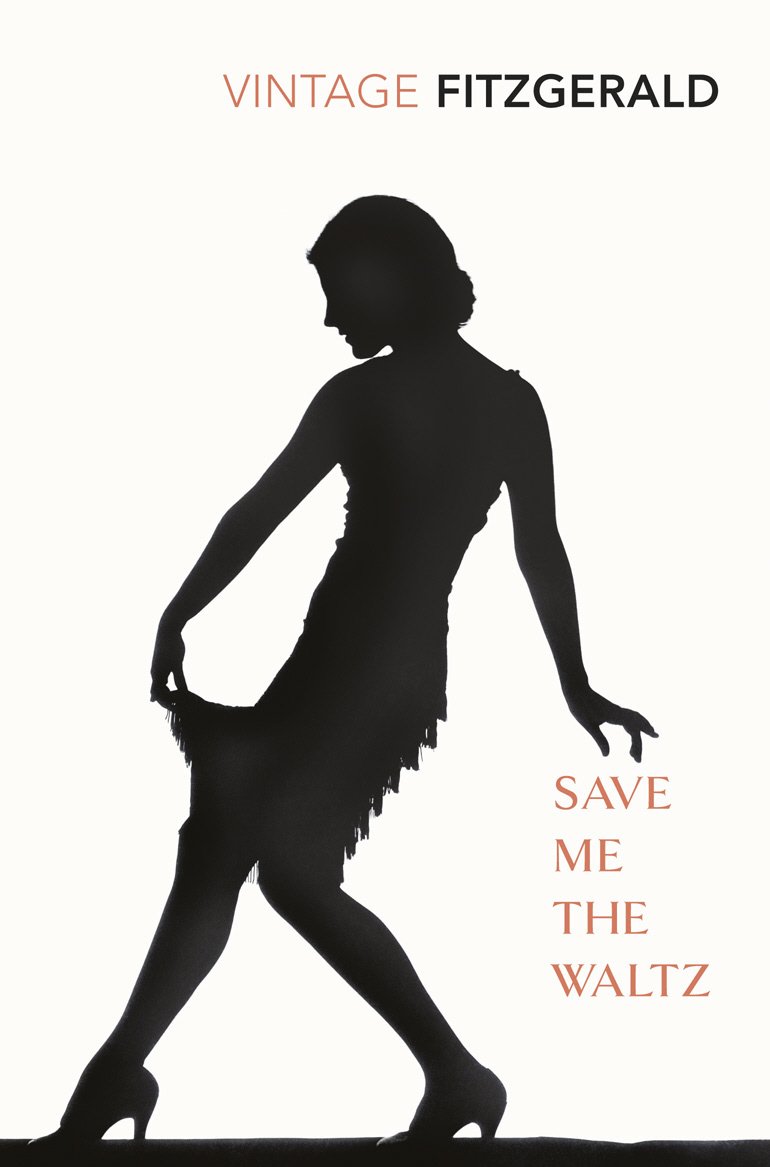A series of random events that began with my dad catching COVID on a cruise last year led to me standing in the English section of the library at Medborgarplatsen (can’t get used to calling it the Tranströmer library yet) on a Monday afternoon and noticing Zelda Fitzgerald’s name on one of the spines. Of course I knew who she was, but I didn’t really have any awareness of her as a writer—plus I happen to find her husband’s work more or less insufferable.
Plenty of interesting women have insufferable husbands, however, so I figured it would be only fair to give Zelda her due outside of Scott’s reputation. Unfortunately, even the relatively recent Vintage Classics edition from 2001 still puts Save Me the Waltz squarely under the shadow of Scott:
One of the great literary curios of the twentieth century Save Me the Waltz is the first and only novel by the wife of F. Scott Fitzgerald. During the years when Fitzgerald was working on Tender is the Night, Zelda Fitzgerald was preparing her own story, which strangely parallels the narrative of her husband, throwing a fascinating light on Scott Fitzgerald’s life and work. In its own right, it is a vivid and moving story: the confessional of a famous glamour girl of the affluent 1920s and an aspiring ballerina which captures the spirit of an era.
Is it even possible to talk about Save Me the Waltz without centering F. Scott Fitzgerald? Impossible to say.
Save Me the Waltz is deemed a largely autobiographical novel about Zelda Sayre’s childhood, marriage, and crushed ballerina aspirations. In that sense the book is pretty easy to summarize: the impulsive, carefree Alabama grows up, courts several different men but marries David, has a daughter, moves to Paris, takes up dance and moves to Naples, then loses first her dance career and then her father within a few months of each other.
Anyone who knows anything about the novel (and more than I did going into it) knows that it was a flop, critically and commercially. As someone who didn’t hate the book, and even liked it better than The Great Gatsby, it’s hard to know what to make of this response. It’s hard for me, nearly a hundred years later, to see what’s wrong with Save Me the Waltz that isn’t wrong with something like The Great Gatsby. Alabama isn’t a “likeable” protagonist (absentee mother numero uno), but that was hardly the same concern for novels in the 30s as it is now; besides, I’d argue that Gatsby is full of psychopaths. The entire second half captures in a taut, subtle way the frustrations that come when you have a wildly famous and successful artist for a spouse, and the obsession to prove yourself independently of their notoriety. The prose is flowery sometimes, but never so much that it’s not fun as well. I think the last sentence is an absolute banger, for example:
They sat in the pleasant gloom of late afternoon, staring at each other through the remains of the party; the silver glasses, the silver tray, the traces of many perfumes; they sat together watching the twilight flow through the calm living-room that they were leaving like the clear cold current of a trout stream.
Thus the temptation to lean hard in the other direction and hail it as an overlooked and unfairly dismissed classic; to name Zelda an artistic genius who never got a fair shake. Is that so? The truth is I can’t tell and that’s deeply unsettling. It’s the inverse reaction, in a way, to Tropic of Cancer or Ulysses: instead of the fear that I would be unable to recognize greatness in a manuscript, the fear that I would be unable to recognize mediocrity.

